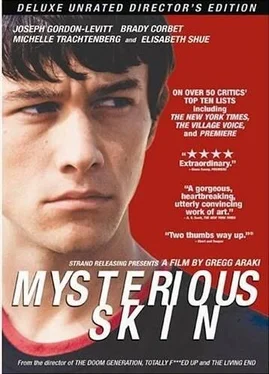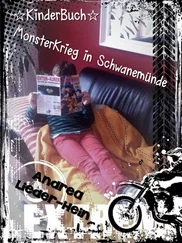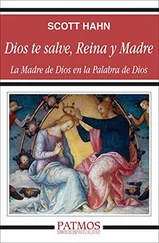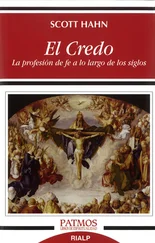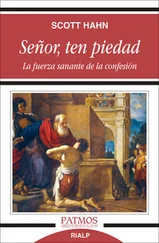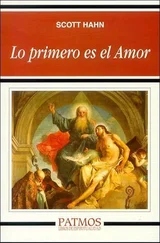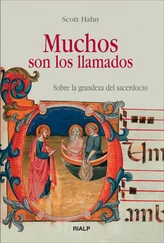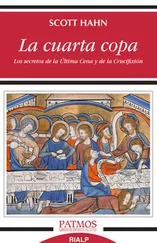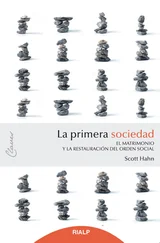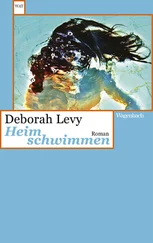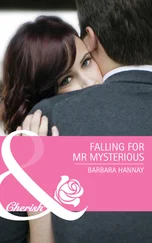Ellen McCormick seemed especially friendly with Eric, almost acting as if they shared critical secrets, or as if he were her son instead of her son’s friend. What did she know about him and Neil? And what about Neil’s doings in Carey Park? Perhaps it didn’t matter now. She leaned forward, her perfume oozing its nectar, her eyes scanning the ditches for identifying road markers. “Up here by this red barn, make a left,” she directed. “Go a couple of miles. You’ll pass some haystacks and a felled tree in the ditch.” She offered us black licorice whips, pushing them into the front seat as if she’d magically retrieved them from the air. “From the same batch as the ones we ate at Cheyenne Bottoms,” she told Eric. “I can’t get rid of this candy now that Neil’s gone.” I took one, and it slid snakelike from her fingers.
Eric honked as he passed a hilly cemetery, its stone crosses and mausoleums outlined against the horizon. He drove farther into the boondocks. Hutchinson’s city limits disappeared behind us. “Here it is,” Mrs. McCormick said from the backseat; Eric steered into the ditch and stopped.
The watermelon field-a flat, sandy plot lacking trees-was separated from the road by a damaged barbed wire fence. A sign, wired to a fence post, spelled out TRESPASSERS WILL BE SHOT. We began trespassing regardless. I could tell the melons had seen better days: their leaves and vines had yellowed, with carcasses of fruit scattered here and there, exhibiting crimson wounds, ravaged to smithereens by raccoons.
We crawled over the fence. “My father taught me-” I said, then stopped myself. No, that was not what I wanted to say. “Um, I know how to tell if a melon’s ripe. There’s a little coil where the fruit meets the vine. It turns brown, and the melon’s ready. I hate to say it, but these are rotten.” I sounded like my professors at the college, and I suddenly wished I’d shut up.
Mrs. McCormick was unfazed. “I don’t need the meat,” she said. “Just the rinds. My neighbor lady taught me to make watermelon rind pickles. Ooh, they’re good. I could get drunk on them. Now, let’s get to picking.”
I searched awhile. A scattering of pumpkins freckled the field’s far end; since Halloween was approaching, I robbed the three with the most intriguing shapes and carried them back to the fence. Good melons were harder to find. Still, I discovered some whose curlicues were brown instead of black; these I ripped from the vines and placed beside the pumpkin trio.
Mrs. McCormick began whooping, her voice lilting in the air like a yodeler’s. She had spied a raccoon. I glanced up and saw her hightailing through the watermelon patch. She chased the coon, gaining on it, her speed almost superhuman. The stripes on the animal’s tail bobbed through the dying vines, and twice she leaned to try and snatch the tail, her feet sliding in the loose sand. Eric laughed, one hand clasped over his mouth, his eyes darting from Mrs. McCormick to me to watch my reaction. Just before she could snag it, the raccoon reached the pasture’s end and scurried under the barbed wire, secure at last. Mrs. McCormick raised her head, gave a final whoop, then turned back to us, exasperated.
Eric calmed down and began wandering around lazily, stirring up clouds of dust. Neil’s mother returned to her previous spot and continued foraging for healthy melons. After a while, she looked up from the space where she was crouching and mock-frowned. She pointed to Eric and aimed her voice at the sky. “What to do with this one? He doesn’t want to work.” Then her finger pointed at me. “But this one,” she said, “is a keeper. This is the one my Neil will have to meet.” I wasn’t certain what she meant by that, but I liked the sound of it. She pushed a sugar baby melon with the flat of her hand, and it slowly rolled toward the fence, leaving a trail in the sand.
After the watermelon afternoon, the weather became explicitly autumn. Eric began wearing a series of bulky black sweaters, his pale skin turning paler. I told him the sweaters looked comfortable. The following evening, when I stopped by the mobile home after class, he presented me with a blue one. “No need to think I’m in love with you,” he said. “I just wanted you to have this. A gift from a friend.”
My mother was working overtime, so I invited Eric back to Little River. He fetched his tapes and a bottle of whiskey. I started to say, Don’t let my mother see that, but that sounded inane. I started to say, I’ve never been drunk before, and that sounded even more inane. I finally said, “Let’s go.”
At home, my room was chilly, so I slipped the blue sweater over my head. “That’s better.” I chose a tape by a band called Breathless and blasted the volume. Eric uncapped the whiskey, took a drink, and delivered it to me. He began to search my closet, finding sheets of paper and a cigar box full of magic markers. Scribbled on the box, in my father’s handwriting, was 6¢ PER POUND. He had written that years ago, when Deborah and I had sold watermelons during the Kansas State Fair.
We sat on the floor. I drank, trying not to wince. Eric took a large piece of paper and folded it into three sections. He explained a game he’d learned in art class: one person would draw a figure’s head on the first third of paper, then make guidelines for the body into the top edge of the middle section and pass it to the next person. Artist number two would draw the body, leaving guidelines for legs and feet. A third artist finished the figure.
Eric handed me the folded paper. The head would be my assignment. “I know,” he said. “Draw an alien.”
I frowned. “Is it in the rules that you have to tell me what to draw?” I began sketching a lightbulb-shaped noggin to appease him. The alien’s nostrils seemed bigger than the ones I remembered from my dreams. After I finished the enormous eyes and the mouth’s miniature slit, I took two more swigs of booze. It felt hot going down, a giddy fusion of fire and water.
“Neil’s lips have touched that exact bottle,” Eric said.
His turn. “I’m not going to tell you what to draw,” I said. I left him the pair of required lines so he could begin his body. He started in, taking twice as long as I had, nibbling his bottom lip in concentration. On the stereo, the band sounded especially melancholy. “There you are with your idiot ideas,” the singer sang. “More or less as far-fetched as mine.”
When Eric had finished, he turned up the final third of paper. “Stupid me. I guess there’s only two of us.”
I thought for a second. “Let’s pretend Neil’s here,” I said. “Do the feet the way you think he’d do them.”
Eric drank. I drank. He chose a different magic marker, started to touch it to the paper, and stopped. “No,” he said. He slid the paper across the floor to me. “You do it. Based on what you know about Neil, based on what you remember, start drawing.”
Neil’s appearance from the Chamber of Commerce photograph formed in my head, and I began from the lines Eric had traced on the paper’s last third. I concentrated on any scrap of evidence I’d discovered about Neil until the drawing was finished. My head felt disordered, and I knew I was getting drunk. I centered the paper between Eric and me, and we unfolded it together.
First came my alien’s head, a picture nearly identical to the one Avalyn had drawn for the Wichita newspaper, its eyes slightly lopsided and overwhelming its face. “That’s good,” Eric said. His torso, a detailed representation of a skeleton, held a blood-dripping scythe in hand, its finger bones splayed at angles, its hipbone shaped like a fat heart. And the skeleton’s legs led into “Neil”’s-my-drawing of feet. Eric regarded it; said “and this is good, too.” I’d sketched a bowlegged form with knobby knees. The legs wore clodhopper, cleated tennis shoes, the laces untied. Next to the left foot were a baseball bat and a glove, the number ninety-nine written on its thumb. And next to the right foot, an oversized baseball. Across its surface, I’d written one word: COACH.
Читать дальше
